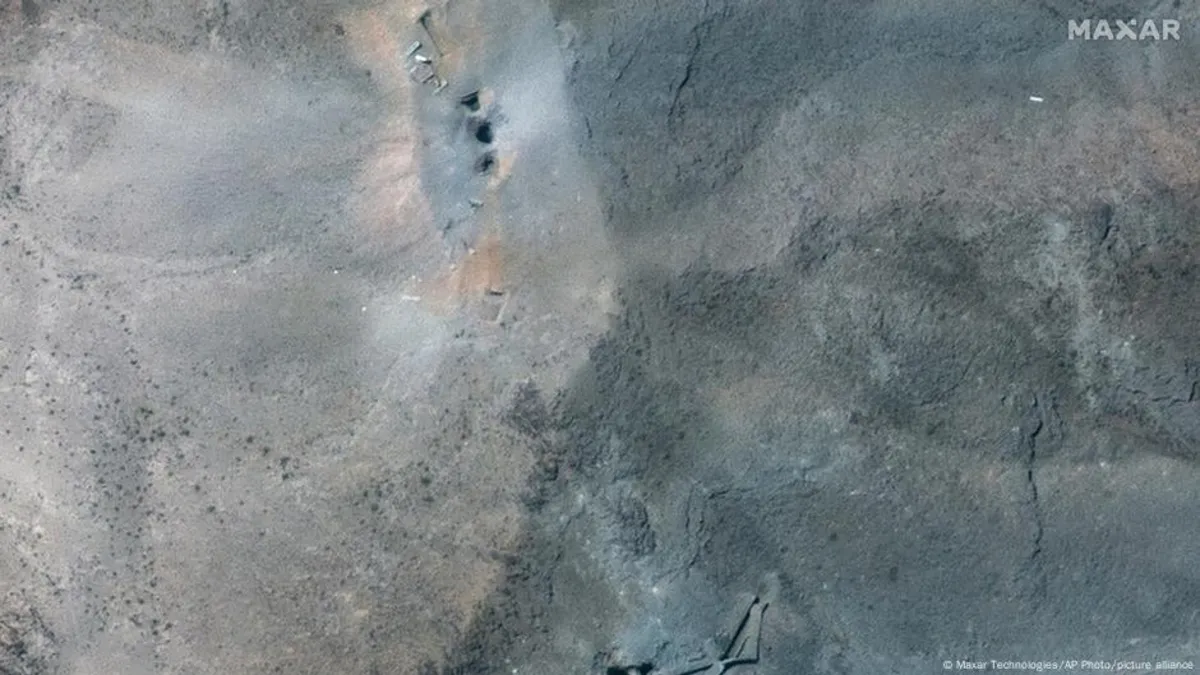
On June 22, 2025, US Defense Secretary hailed the Midnight Hammer strikes on Iran as an overwhelming success, noting that the operation involved the deployment of over a dozen 30,000-pound bombs. The strikes were aimed at crippling Iran's nuclear capabilities, with President Donald Trump asserting that three significant nuclear sites were effectively obliterated by the US attack. In response, Iran's top diplomat defended the country's right to a legitimate response to the aggression.
The situation escalated as Iran's atomic energy agency announced that the US attacks would not deter its ongoing nuclear activities. Iranian President Masoud Pezeshkian emphasized that the US must receive a response for its actions, indicating a potential for increased hostilities. During a conversation with French President Emmanuel Macron, Pezeshkian called for unity among Iranians against US and Israeli aggression.
The European Union has announced plans to convene a meeting on June 23, 2025, highlighting that international security could be severely threatened if Iran advances its nuclear weapons program. In a related development, Israel confirmed the retrieval of the remains of three hostages from Gaza, further complicating the regional crisis.
In light of the escalating tensions, the US State Department ordered all non-essential personnel and families of staff at the US Embassy in Lebanon to evacuate due to fears of Iranian retaliation for the US strikes. The notice did not mention any potential evacuation flights for private US citizens but advised them to utilize existing commercial services to depart Lebanon.
Iran is reportedly considering closing the Strait of Hormuz, a crucial waterway for global oil transportation, following the US bombing raids. The decision rests with Iran's Supreme National Security Council, although parliament members have shown support for the measure. Esmail Kosari, a member of Iran’s parliament, stated that the closure of the waterway remains under discussion, reflecting Iran's longstanding strategy of using such threats to counter Western pressure.
In a significant military escalation, Israel launched a series of airstrikes against Iran, deploying around 30 fighter jets to target military installations across the country. The Israeli military confirmed attacks on various sites, including the Imam Hussein Strategic Missile Command Center and missile launchers in Bushehr province, further heightening tensions in the region.
The head of the International Atomic Energy Agency (IAEA), Rafael Grossi, stated that it is too early to assess the damage inflicted on Iran's Fordo enrichment site, which remains fortified within a mountain. He called for all parties to return to diplomatic negotiations, emphasizing the need for inspectors to access Iran's nuclear facilities, which have remained off-limits since the initial strikes.
The Islamic Revolutionary Guards Corps (IRGC) issued a stern warning to US military bases in the Middle East, asserting that the recent airstrikes on Iran's nuclear facilities have put US forces in direct danger. The IRGC hinted at potential retaliatory actions that could exceed the understanding of the aggressors, further complicating an already volatile situation.
China condemned the US strikes, stating that they exacerbate tensions in the Middle East and violate international law. The Chinese Foreign Ministry called for an immediate ceasefire and urged all parties, particularly Israel, to halt hostilities. Similarly, Russia's Foreign Ministry criticized the US actions as irresponsible and contrary to international law, advocating for diplomatic efforts to resolve the crisis.
The recent events surrounding the US airstrikes on Iran's nuclear facilities mark a critical juncture in Middle Eastern geopolitics. As tensions rise and military actions escalate, the potential for a broader conflict looms. The international community watches closely, hoping for a return to diplomatic negotiations that could prevent further escalation and promote regional stability.